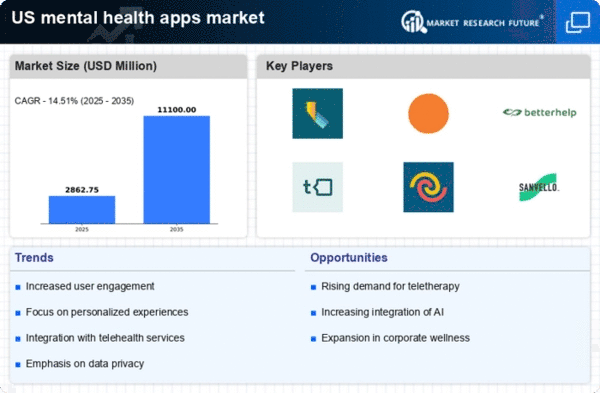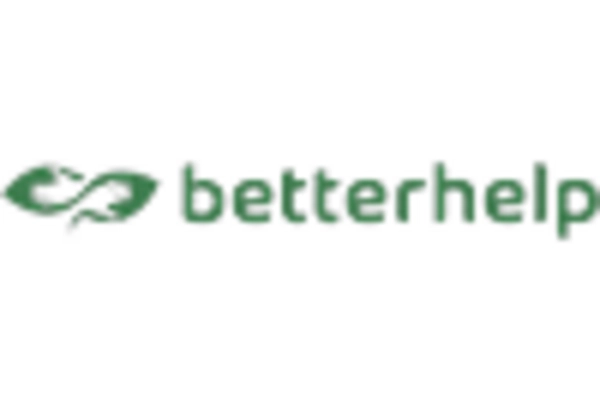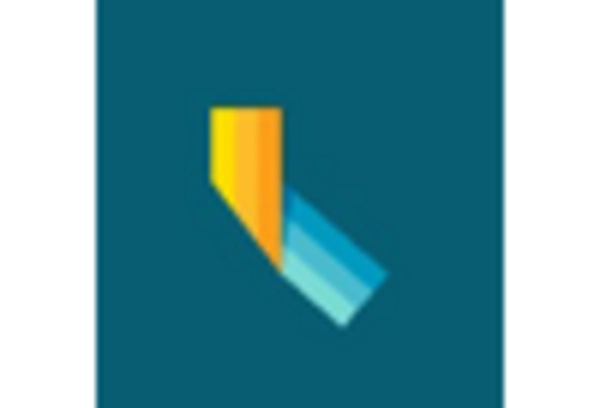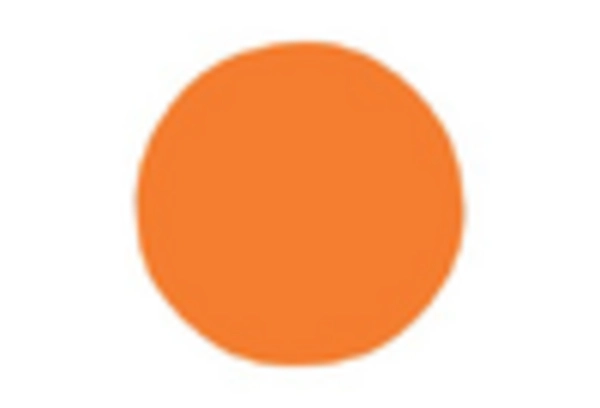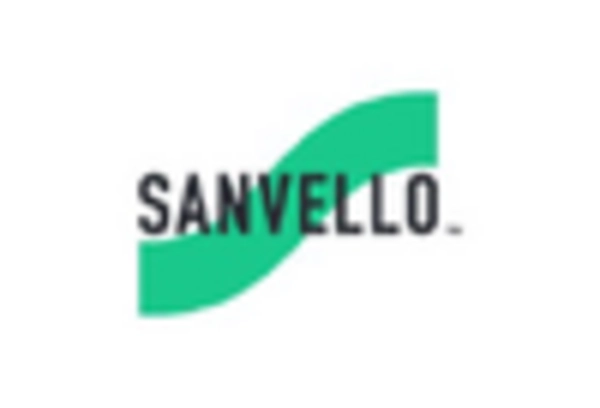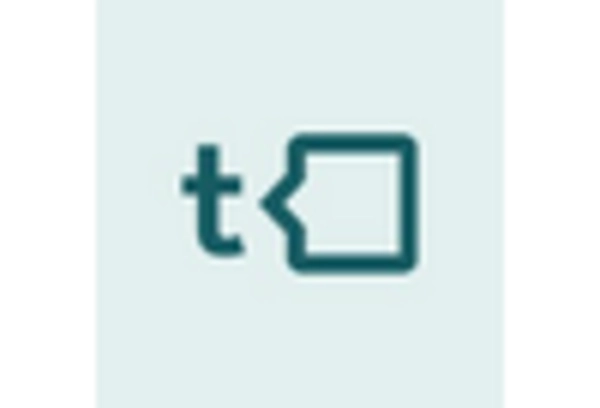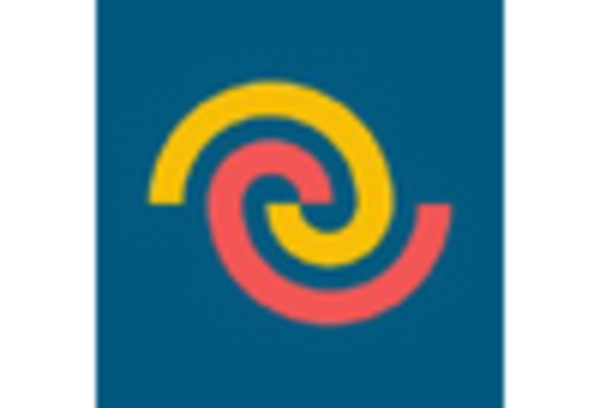Rising Awareness of Mental Health Issues
The increasing awareness surrounding mental health issues in the US is a pivotal driver for the mental health-apps market. As societal stigma diminishes, more individuals are seeking help for mental health conditions. Reports indicate that approximately 1 in 5 adults experience mental illness each year, highlighting a substantial target audience for mental health applications. This growing recognition of mental health's importance encourages users to explore digital solutions for support and management. Consequently, the mental health-apps market is likely to expand as more people turn to technology for assistance, leading to a surge in app downloads and user engagement. The industry is poised to benefit from this heightened awareness, as it aligns with the increasing demand for accessible mental health resources.
Technological Advancements in App Development
Technological advancements play a crucial role in shaping the mental health-apps market. Innovations in artificial intelligence (AI), machine learning, and data analytics enable developers to create more effective and user-friendly applications. These technologies facilitate personalized experiences, allowing users to receive tailored recommendations based on their specific needs. Furthermore, the integration of wearable technology enhances the functionality of mental health apps, providing real-time data and insights. As a result, the mental health-apps market is experiencing a transformation, with more sophisticated tools becoming available to users. The industry's growth is further supported by the increasing investment in technology, which is projected to reach $200 billion by 2025, indicating a robust future for mental health applications.
Government Initiatives Supporting Mental Health
Government initiatives aimed at improving mental health services are significantly influencing the mental health-apps market. Various federal and state programs are being implemented to promote mental health awareness and increase access to care. For instance, the US government has allocated substantial funding to mental health initiatives, which encourages the development and adoption of digital health solutions. These initiatives not only enhance public awareness but also provide financial support for app developers, fostering innovation within the industry. As a result, the mental health-apps market is likely to benefit from these supportive measures, leading to a more robust ecosystem for mental health solutions.
Growing Interest in Preventive Mental Health Care
The growing interest in preventive mental health care is emerging as a key driver for the mental health-apps market. Individuals are increasingly recognizing the importance of proactive measures to maintain mental well-being, rather than solely seeking help during crises. This shift in mindset encourages the use of mental health apps for regular check-ins, mood tracking, and stress management. The market is responding to this trend by offering features that promote self-care and resilience-building. As preventive care becomes more mainstream, the mental health-apps market is likely to expand, attracting users who prioritize mental wellness as part of their overall health strategy.
Increased Demand for Accessible Mental Health Resources
The demand for accessible mental health resources is a significant driver for the mental health-apps market. With traditional therapy often being costly and time-consuming, many individuals are seeking alternative solutions that offer convenience and affordability. Mental health apps provide users with immediate access to resources, including self-help tools, guided meditations, and virtual therapy sessions. This shift towards digital solutions is reflected in the market's growth, with projections indicating a compound annual growth rate (CAGR) of 23% from 2021 to 2028. As more people recognize the benefits of using apps for mental health support, the industry is likely to see an influx of new users, further solidifying its position in the healthcare landscape.


